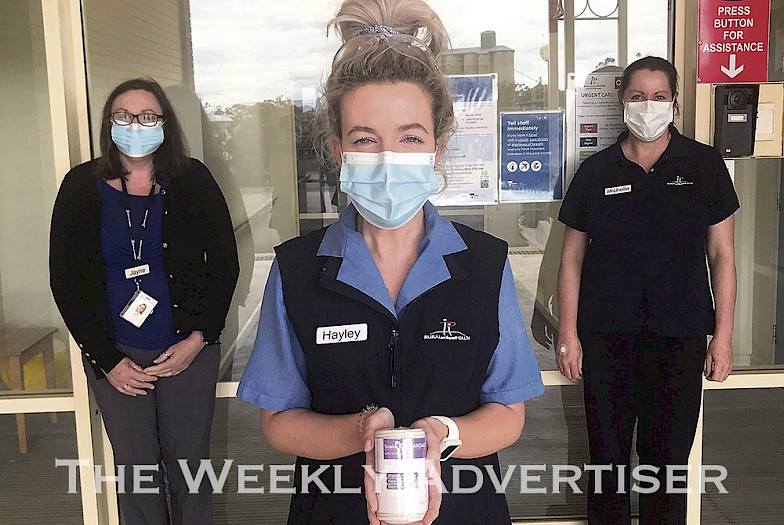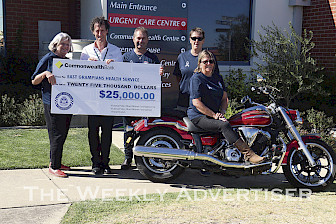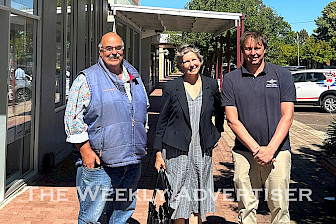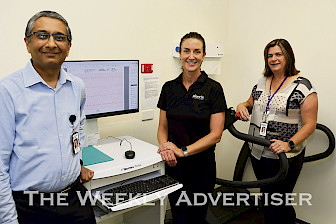“I normally always have my phone on me, but this time I didn’t, so I knew I had to get inside and find it,” she said.
Ms Smith said she struggled to locate her phone and instead grabbed a bandage and wrapped from her fingers to half-way between her elbow and shoulder.
She said she was aware she needed to keep her arm as still as possible to limit the spread of potential venom that might have been injected from the snakebite.
Ms Smith called 000 and paramedics told her they would be 40 minutes.
However, after 10 minutes, she said her condition started to deteriorate quickly and she tried to walk out to her car.
“I started to feel worse. My head hurt, I had stomach pains and I was starting to get a rash,” she said.
Ms Smith said her neighbour saw her vomiting in her driveway and offered to drive her to the hospital.
Arriving at urgent care, the Hopetoun team jumped into action and prescribed medication to try to alleviate the symptoms.
Adult retrieval was called to fly in anti-venom, while MICA paramedics and a clinical support officer arrived to assist.
The Helicopter Emergency Medical Service, HEMS, landed at the Hopetoun football oval with the requested anti-venom.
“The HEMS team assessed my condition and explained the side effects of the anti-venom are often worse than the venom itself. I decided to see if my body was able to fight it off itself before deciding to take the anti-venom,” Ms Smith said.
Loaded onto the helicopter to be transferred to Bendigo, it was during the short flight the decision was made to administer the anti-venom.
Forty minutes later, Ms Smith was in the Intensive Care Unit, ICU, at Bendigo Hospital, where blood tests confirmed the snake had injected it’s venom.
Ms Smith spent the next two days in the ICU while medical professionals took regular blood tests to monitor her condition before she was transferred to a regular hospital ward and then released later the same day.
“Apart from being tired I haven’t had any further side effects so far, which is good. Everybody did everything they possibly could to help me and I will be forever thankful to everyone,” she said.
RNH acting executive clinical services manager Meghan Noonan said snakes only attacked if they felt threatened.
She said it was important for people to remain calm when they came in contact with a snake.
“Snakes are particularly prevalent at this time of the year and there have been several snake bites reported within the region,” she said.
“The community is urged to be vigilant and in the event of a snake bite call triple zero and apply a firm bandage starting at the snake bite and cover the entire limb and keep the limb immobilised.”
The entire November 18, 2020 edition of The Weekly Advertiser is available online. READ IT HERE!






